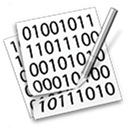Uncovering the Best Mem Write Alternative for Your Needs
Mem Write is a valuable free and open-source Linux-exclusive tool for directly editing computer memory, primarily used for cheating in games. While its graphical user interface and memory protection features are commendable, its Linux-only nature might limit its appeal for users on other operating systems or those seeking additional functionalities. If you're looking for a powerful memory editor but Mem Write doesn't quite fit your requirements, exploring a reliable Mem Write alternative is essential.
Top Mem Write Alternatives
Discover a diverse range of memory editing tools that offer similar functionalities to Mem Write, often with broader platform support and unique features tailored for various hacking and gaming needs.

Cheat Engine
Cheat Engine is an open-source powerhouse, available across Free, Open Source, Mac, Windows, Linux, Android, and Wine, making it a highly versatile Mem Write alternative. It excels at modifying single-player games, offering features like an embedded debugger, auto assembler, automated speed adjustments, a built-in search engine, and a hex editor, providing far more advanced capabilities than Mem Write's basic memory editing.

ArtMoney
ArtMoney is a powerful universal memory editor for Windows, making it an excellent Freemium Mem Write alternative for PC users. It eliminates the need for cheat codes by allowing direct memory manipulation for all games. While not open-source, its widespread compatibility and dedicated gaming features make it a strong contender for game-specific memory editing.

scanmem & GameConqueror
For Linux users who appreciate Mem Write's open-source nature, scanmem & GameConqueror presents a robust Free and Open Source alternative. GameConqueror provides a user-friendly GUI for scanmem, a powerful game hacking tool that supports various scan types and data. It maintains Mem Write's Linux focus while offering a more structured approach to memory manipulation.

Bit Slicer
Mac users seeking a Mem Write alternative will find Bit Slicer to be a fantastic Free and Open Source option. It's a universal game trainer for OS X, allowing users to search and modify values like score, lives, and ammunition. Its support for 64-bit systems and an integrated debugger make it a powerful tool for Mac-based game hacking, providing capabilities not directly available in Mem Write.

RAM Cheat
RAM Cheat is a Freemium universal game trainer primarily for Windows, offering a straightforward Mem Write alternative for those focused on gaming. While its features are more geared towards general game manipulation rather than deep memory editing, its ease of use and dedicated gaming functionalities make it a viable option for quick in-game adjustments.

Squalr
Squalr is a Free and Open Source software designed for easy game cheating on Windows. Similar to Mem Write, it allows editing of health, gold, and stats, but it also enables complex hacks through scripting. Its open-source nature and dedicated gaming features, including iPhone/iPod sync and SOCKS proxy client/server, make it a robust and flexible Mem Write alternative for Windows users.

CoSMOS
CoSMOS, by Cheat Happens, is a Free memory scanner and game hacking tool for Windows. While not open-source, its primary strength lies in its extensive database of trainers and frequent updates (250-400 new/updated trainers monthly). For users prioritizing convenience and ready-made solutions over custom memory editing, CoSMOS serves as a strong Mem Write alternative, especially for popular games.
With a variety of powerful memory editing tools available, from open-source cross-platform solutions like Cheat Engine to specialized trainers for specific operating systems, finding the perfect Mem Write alternative for your game hacking and memory manipulation needs is entirely possible. Explore these options and choose the best fit based on your operating system, desired features, and comfort with open-source versus proprietary software.